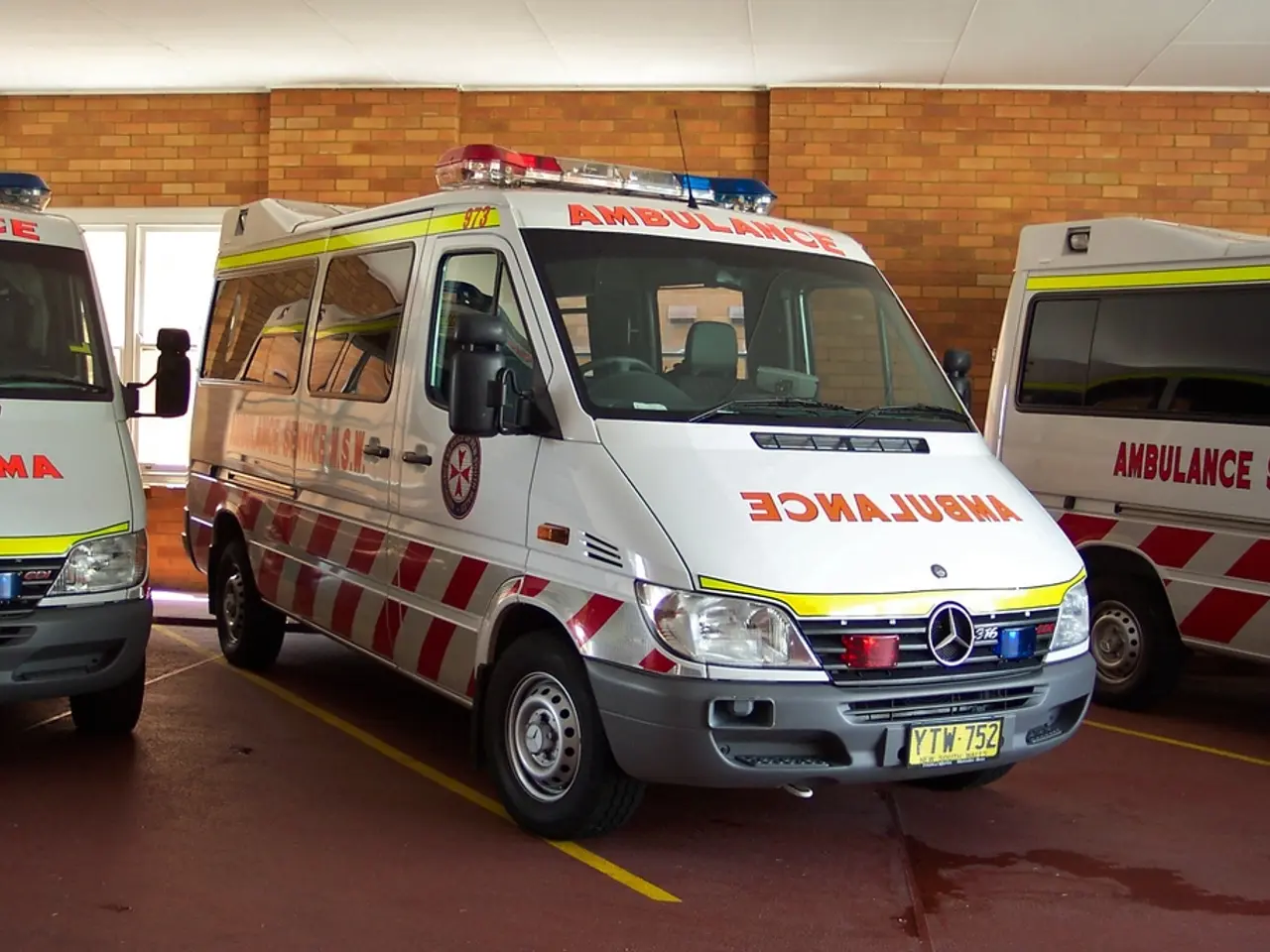Enhanced Patient Care Administration, Easing the Burden on Emergency Health Services (DKG)
The German Hospital Association (DKG) has presented a position paper for a much-needed reform of outpatient emergency care, as of August 20, 2025. The reform aims to provide adequate and accessible emergency care in cooperatively operated integrated emergency centers (INZ) within hospitals.
Overloaded emergency rooms and excessively long waiting times are common issues in the current reality of emergency care. To address these challenges, the DKG proposes a new financing model for INZ. The partners on the local site, typically hospitals and association of statutory health insurance physicians, will decide how to shape their cooperation, considering the scarcity of healthcare resources.
The INZ at hospitals will be the organizational anchor point for future emergency care. They will be funded via a separate budget that covers all expected material and personnel costs for outpatient care within the INZ. This new financing system is crucial for INZ to operate cost-coveringly.
Nationwide planning criteria are being developed for the selection of suitable locations for INZ. Accessibility and the number of people served by a location are crucial factors in INZ selection. The goal is to use targeted central patient management to ensure that only those patients who truly need it use the integrated emergency centers at hospitals.
A highly competent and digitally savvy control center is key to the success of any emergency care reform. This control center should provide an initial assessment and schedule direct appointments with general practitioners for less urgent outpatient cases. The current emergency care financing is inadequate and non-cost-covering, and a reform is necessary to address this issue.
The financing system must reflect costs associated with INZ provision. The federal states will make the final decision on INZ locations within their planning responsibility. The reform of emergency care is one of the most urgent projects in health policy.
Dr. Gerald Gaß, chairman of the DKG board, has explained the need for emergency care reform. He emphasized that the aim is to provide a new way to finance emergency care appropriately. The implementation of these proposals is tied to the urgent need for a reform in emergency care financing, urging swift governmental action in 2025.
The partners on the local site have proposed an INZ-specific budget distinct from the inpatient budget that covers all expected material and personnel costs for outpatient emergency care. Additionally, funding for contract medical on-call services should be invested in structural expansion of the INZ. This reform proposal is a significant step towards improving emergency care in Germany.
Read also:
- Abu Dhabi initiative for comprehensive genetic screening, aiming to diagnose over 800 conditions and enhance the health of future generations in the UAE.
- Elderly shingles: Recognizing symptoms, potential problems, and available treatments
- Protecting Your Auditory Health: 6 Strategies to Minimize Noise Damage
- Exploring the Reasons, Purposes, and Enigmas of Hiccups: Delving into Their Origins, Roles, and Unsolved Aspects







